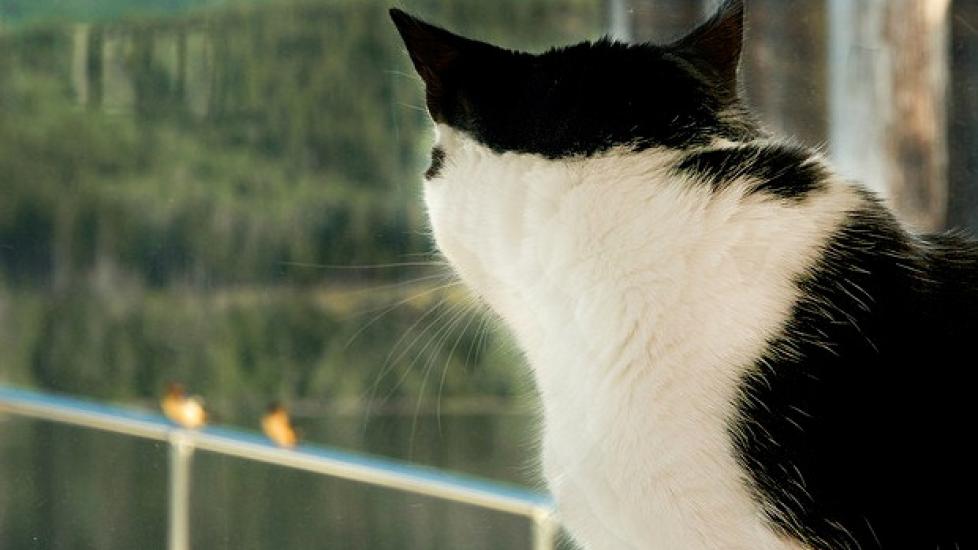5 Ways to Keep Your Indoor Cat Purring
Indoor cat or outdoor cat? When you bring home a cat or kitten, this is likely one of the first decisions you will have to make. Indoor cats are safer than their outdoor counterparts—research shows that outdoor cats generally have a lifespan of two years or less—but indoor cats require extra attention and entertainment to stave off potential boredom and keep their “call of the wild” instincts healthy and active.
As loving cat parents, the decision to keep them indoors is a smart one, but you have to take responsibility for their enrichment. To keep your cat happy, you’ll want to make sure that his needs are met. “I feel a troubling problem with indoor cats is that they get bored with their environment and they don't get enough stimulation on a daily basis,” says Dr. Mark Howes, DVM, Owner and Medical Director of Berglund Animal Hospital in Evanston, Illinois.
Cats, he adds, are hunters and derive life satisfaction with the thrill of the hunt. Howes recommends environmental enrichment of indoor cats, suggesting some of his, as well as Dr. Tony Buffington’s Ohio State University research, tips for keeping your indoor cat purring:
#1. For the indoor cat anxious to get its claws dirty outside, a short stint in the wild may be the answer. Training cats to wear a harness and giving them some time out in the “wild” under a bush can satisfy some cats. For those resistant to a cat harness, a custom window seat may be enough to pacify a fidgety cat.
#2. Scheduling more playtime with cats can help relieve the stress of being indoors when they would rather be out hunting.
#3. Cat condos that are a sufficient height and complexity gives kitties vertical space to look down upon their territory.
#4. Placing food in a variety of places inside the home allows cats actually "hunt" for the food and can make the hunt more exciting than a normal dinnertime routine.
#5. Playing with cat toys such as a laser pointer or "mouse" at the end of a fishing pole-like toy can get cats mentally and physically stimulated.
Howes notes that outdoor cats (and those that go outside frequently) seem to be different creatures. “When I see them at my office, they often exude confidence and see the trip to the vet as only a slight inconvenience in their day,” he says. But on the flipside, Dr. Howes understands the dangers for a cat to be outside, especially in busy urban areas with a lot of car traffic. “I wish we could teach them to look both ways when they cross the street. That's a topic for another day.”
Image by Flickr user @A. Davey
